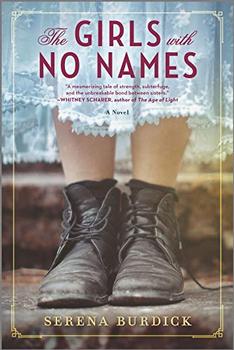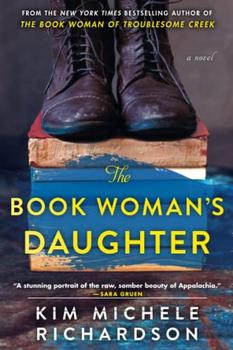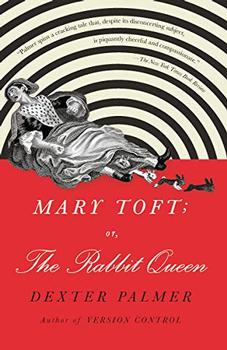Summary | Excerpt | Reading Guide | Reviews | Beyond the book | Read-Alikes | Genres & Themes | Author Bio

It's the early 20th century and women are taking to the streets of New York to demand their rights. Teenage sisters Luella and Effie Tildon have enjoyed a comparatively privileged upbringing, but money has not afforded them health or happiness; Effie suffers the effects of a malformed heart, while Luella longs for freedom. The sisters rebel quietly at first, but when Luella's defiance escalates, a dangerous rift tears the family apart. Waking one morning to find her sister gone, Effie fears her father has made good on his threat to send Luella to the House of Mercy. This infamous reform house promises to straighten the paths of troublesome girls through a strict regimen of manual labor and religious virtue, and Effie decides she must get inside in order to rescue her sister and repair her broken family.
The primary strength of the novel lies in the depth of its characters. None of the main players are presented as wholly good or bad, and in the nuance of these complexities, Burdick captures a society on the cusp of change. Tension looms in the background as the fight for gender equality escalates, and though the narrative is unflinching in its look at the myriad ways institutionalized male dominance attempted to quash the female spirit, compassion and resistance often come from unexpected sources. With old, patriarchal ways of thinking being increasingly opposed by various characters, the book presents a very specific moment in history while also drawing thematic parallels with social movements taking place in the present day.
By framing the narrative from three viewpoints – those of Effie; her mother; and Mable, a resident of the House of Mercy with a distressing past – Burdick shows how gendered injustice transcends age and class. The weaving together of these characters' lives, along with those of the girls and women around them, introduces the idea of sisterhood beyond the ties of blood alone.
The Girls with No Names is certainly not a thriller in the conventional sense, but well-placed twists, heavy emotional beats, and an ever-quickening pace lend the book the gripping feel of a page-turner. The same is also true of Burdick's prose. There's a beauty to her writing, and a distinct lack of gratuitousness that brings much needed reverence to the heavy subject matter without ever sacrificing the novel's immense readability.
If there is one area of the novel that would have benefitted from further development, it's the look at disability and disfigurement. Effie lives with various health complications that stem from a heart defect. This includes clubbed fingers, which she chooses to hide with gloves, mirroring her mother's use of gloves to cover scars left by an incident involving fire. There are interesting thematic undertones here about the inheritance of female shame. It speaks of the pressure women feel to conceal their supposed imperfections for the benefit of the male gaze and society's approval. While it never felt exploitative on the author's part, the use of physical difference as a symbolic marker for the book's deeper themes made me a little uneasy.
Though the inherent cruelty of the world these characters inhabit can make this an upsetting read at times, there is a consistent presence of hope and resilience. Burdick pays homage to the real-life girls and women who were at the heart of the fight for change but whose stories may have been silenced — kept prisoner in the four walls of places like the House of Mercy. Within these pages, through the lives of these fictional counterparts, their legacies live on.
![]() This review
first ran in the February 19, 2020
issue of BookBrowse Recommends.
This review
first ran in the February 19, 2020
issue of BookBrowse Recommends.

If you liked The Girls with No Names, try these:

by Kim Michele Richardson
Published 2022
Honey Lovett, the daughter of the beloved Troublesome book woman, who must fight for her own independence with the help of the women who guide her and the books that set her free.

Mary Toft; or, The Rabbit Queen
by Dexter Palmer
Published 2020
In 1726, in the town of Godalming, England, a woman confounded the nation's medical community by giving birth to seventeen rabbits. This astonishing true story is the basis for Dexter Palmer's stunning, powerfully evocative new novel.
Your guide toexceptional books
BookBrowse seeks out and recommends the best in contemporary fiction and nonfiction—books that not only engage and entertain but also deepen our understanding of ourselves and the world around us.